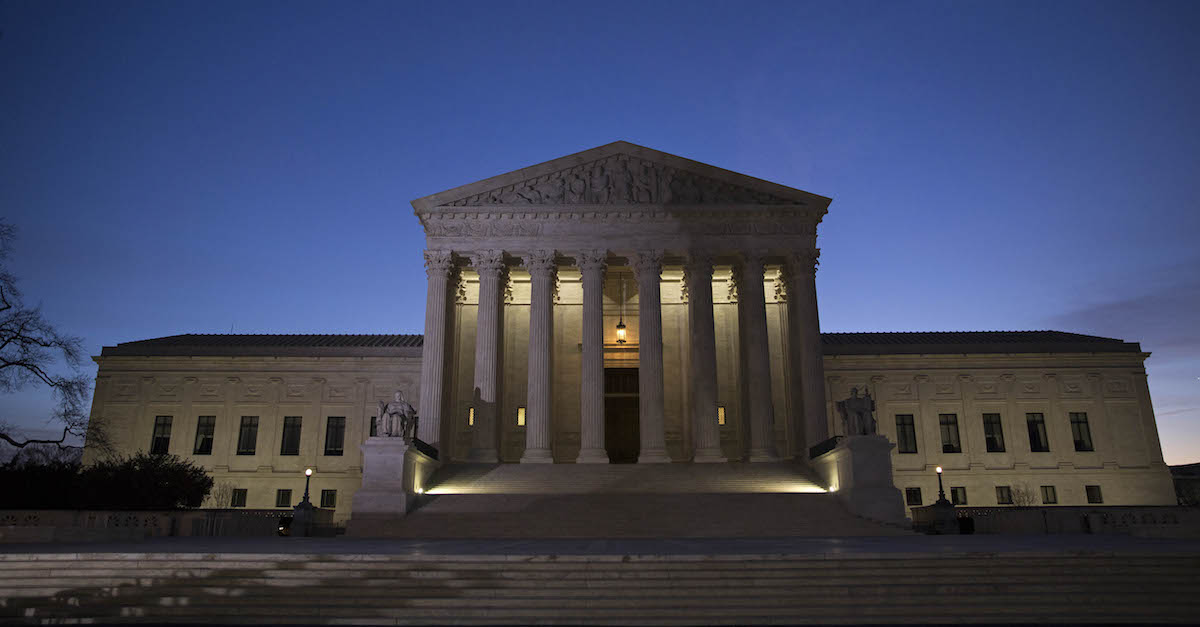Supreme Court Short Listers Stand in Stark Contrast on First Amendment’s Ministerial Exception2/12/2022
PT1st will report on the First Amendment records of the three candidates most often mentioned as making up President Biden’s “shortlist” to replace Justice Stephen Breyer on the U.S. Supreme Court – Judge Ketanji Brown Jackson of the U.S. Court of Appeals for the District of Columbia, Leondra Kruger, California Supreme Court Justice, and J. Michelle Childs, a federal district judge in South Carolina. In this piece, PT1st examines an opinion written by Judge Childs and compares it with a litigating position taken by Justice Kruger when she served in the Department of Justice. Of the Justices appointed by Democratic presidents, Justice Stephen Breyer is probably the friendliest to religious claims. An article published earlier this week, for example, explained that Breyer voted in favor of religious liberty in nine of the last 13 religious liberty cases.
With Justice Breyer’s pending retirement from the Supreme Court, President Biden has the chance to pick a nominee who is as good or better than Justice Breyer on First Amendment issues. As Justice Byron White famously said, every new Justice makes a “different court,” even if she is replacing someone she largely agrees with. How might the newly comprised Supreme Court be a different court on the religious cases that so regularly come before the Court? At least with respect to one issue, the First Amendment’s ministerial exemption, the choice between Justice Kruger and Judge Childs could make all the difference. The ministerial exemption, first recognized by the Supreme Court in 2011 in a case called Hosanna-Tabor v. EEOC, forbids the government from contradicting “a church’s determination of who can act as its minister.” In that case, then-Assistant to the Solicitor General Leondra Kruger argued that the First Amendment’s Religion Clauses have nothing to say about a church’s decisions with respect to its employees, a position that even the liberal Justice Elena Kagan considered “amazing” — and not in a good way. (You can listen to the exchange here, starting at 40:30.) Kruger’s position lost, unanimously. Earlier this week, in an attempt to distance Kruger from that argument, the former Solicitor General Donald Verrilli said that the call to make that (losing) argument was his alone. If it’s true that Kruger was just following orders, then we don’t know how she’d rule on ministerial exception cases that might come before her. It is entirely possible that a Supreme Court Justice Kruger would have a more expansive view of the First Amendment’s protections than she argued for in Hosanna-Tabor as an Assistant to the Solicitor General. But really, we just don’t know. What we do know is how Judge Childs applied the ministerial exemption in a case after Kruger’s unanimous loss. In a case called Yin v. Columbia International University, Childs found that a teacher at Columbia International University (CIU)—a “multi-denominational Christian institution of higher education dedicated to preparing world Christians to serve God with excellence”—was a minister and, accordingly, could not recover from her employer for alleged violations of civil rights laws. We think that Judge Childs applied the ministerial exception correctly in that case. The teacher in that case, Yin, “required her students to pray together,” “integrated biblical materials inter her courses, and prepared students for ministry roles.” To Judge Childs, these clearly religious acts “weigh[ed] heavily … in favor of applying the ministerial exception.” Other factors, to be sure, weighed against finding that Yin was a minister. She was the Director of Teaching English to Speakers of Other Languages Program at CIU, a nominally secular title. And Judge Childs found that Yin didn’t understand herself to be a religious leader or a minister, notwithstanding her overtly religious activities. But Judge Childs gave those considerations less weight, looking more at what Yin did at CIU than anything else. Only a few years later, a majority of the Supreme Court that included Justice Breyer decided Our Lady of Guadalupe v. Morrissey-Berru. In that case, the Court upheld Child’s understanding of the ministerial exception when it recognized that, for purposes of the ministerial exception, “[w]hat matters is ... what an employee does.” Judge Childs is to be commended for understanding the paramount importance of an employee’s actions long before the Supreme Court itself made that importance clear. The position that Justice Kruger advanced in Hosanna-Tabor, namely that the Religion Clauses say nothing about the relationship of religious organizations with their ministers, differs sharply from how Justice Breyer voted both in Hosanna-Tabor and in Our Lady of Guadalupe. And the position couldn’t be more different from how Judge Childs applied Hosanna-Tabor in Yin. If Justice Kruger is the nominee, PT1st hopes that members of the Senate Judiciary Committee will question her to get to the bottom of her position on the ministerial exemption. In the meantime, the available evidence shows that Judge Childs will likely vote like Justice Breyer has voted, at least in ministerial-exemption cases. Comments are closed.
|
Archives
June 2024
Categories
All
|
ABOUT |
ISSUES |
TAKE ACTION |



 RSS Feed
RSS Feed